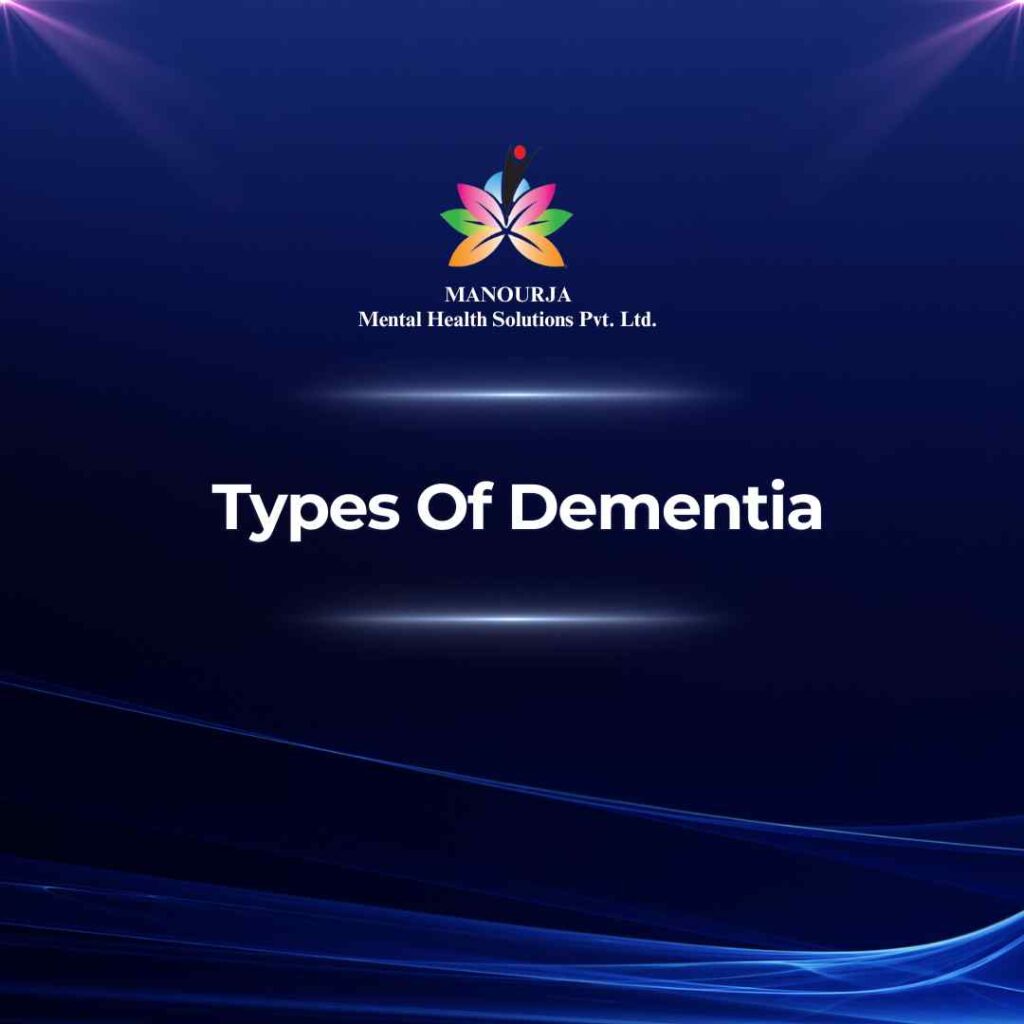Types of Dementia

- Characteristics: Alzheimer’s is the most common type of dementia and typically progresses slowly over time. It is characterized by the accumulation of abnormal protein deposits in the brain, leading to nerve cell damage and death.
- Symptoms: Early symptoms often include difficulty remembering recent events or conversations, challenges with problem-solving and planning, confusion about time or place, and changes in mood or behavior. As the disease progresses, individuals may experience worsening memory loss, communication difficulties, disorientation, and difficulty performing tasks of daily living.
- Characteristics: Vascular dementia occurs when there is reduced blood flow to the brain, often due to conditions such as stroke, small vessel disease, or other vascular disorders. It can occur suddenly following a stroke or develop gradually over time.
- Symptoms: Symptoms can vary depending on the location and severity of the damage but may include problems with memory, attention, and executive function, as well as difficulties with language, judgment, and motor skills. Other symptoms may include depression, apathy, and emotional instability.
- Characteristics: LBD is characterized by the presence of abnormal protein deposits called Lewy bodies in the brain. It shares features with both Alzheimer’s disease and Parkinson’s disease.
- Symptoms: Common symptoms include fluctuating cognition, visual hallucinations, movement disorders (such as tremors or stiffness), and disturbances in sleep and behavior. Individuals may also experience autonomic dysfunction, such as changes in blood pressure or body temperature regulation.
Frontotemporal Dementia (FTD)
- Characteristics: FTD is a group of disorders characterized by the progressive degeneration of the frontal and temporal lobes of the brain, which are involved in personality, behavior, and language.
- Symptoms: Symptoms can vary depending on the subtype of FTD but often include changes in personality and behavior, such as disinhibition, apathy, or repetitive behaviors. Language difficulties, including aphasia or loss of vocabulary, may also occur. Memory problems are less common in the early stages of FTD compared to Alzheimer’s disease.
- Characteristics: Mixed dementia refers to a combination of two or more types of dementia, most commonly Alzheimer’s disease and vascular dementia. It is common for individuals to have mixed dementia, especially as they get older.
- Symptoms: Symptoms of mixed dementia can vary depending on the types of dementia involved, but they often include a combination of memory loss, cognitive decline, and changes in behavior or mood.
Creutzfeldt-Jakob Disease (CJD)
- Characteristics: CJD is a rare, rapidly progressive form of dementia caused by abnormal proteins called prions. It can lead to severe neurological symptoms and typically has a rapid onset and progression.
- Symptoms: Symptoms may include rapidly progressive cognitive decline, muscle stiffness or jerking movements, difficulty with coordination and balance, and changes in behavior or mood. Other symptoms may include vision problems, sleep disturbances, and eventually, a loss of ability to move or speak.
These are just a few examples of the many types of dementia, each with its own unique characteristics, symptoms, and underlying causes. Proper diagnosis by a healthcare professional is essential for determining the specific type of dementia and developing an appropriate treatment plan.
At MANOURJA, we believe in the transformative power of counseling. Our experienced therapists offer a safe and supportive space where you can explore your thoughts, emotions, and challenges. Through personalized counselling sessions, we’ll work together to develop coping strategies, build resilience, and achieve lasting positive change. Discover the path to a healthier, happier you with MANOURJA counselling services.
MANOURJA Rehabilitation Services
At MANOURJA, we’re dedicated to helping you in rebuild your life, after difficult times. Our rehabilitation services focus on understanding what you need to move forward, whether you’re recovering from addiction, trauma, or any psychological – social challenges. We create personalized plans, that are all about helping you, regain your strength and find hope again. With a caring team by your side, you’ll have the support to make real progress and take steps toward a brighter, healthier future.
